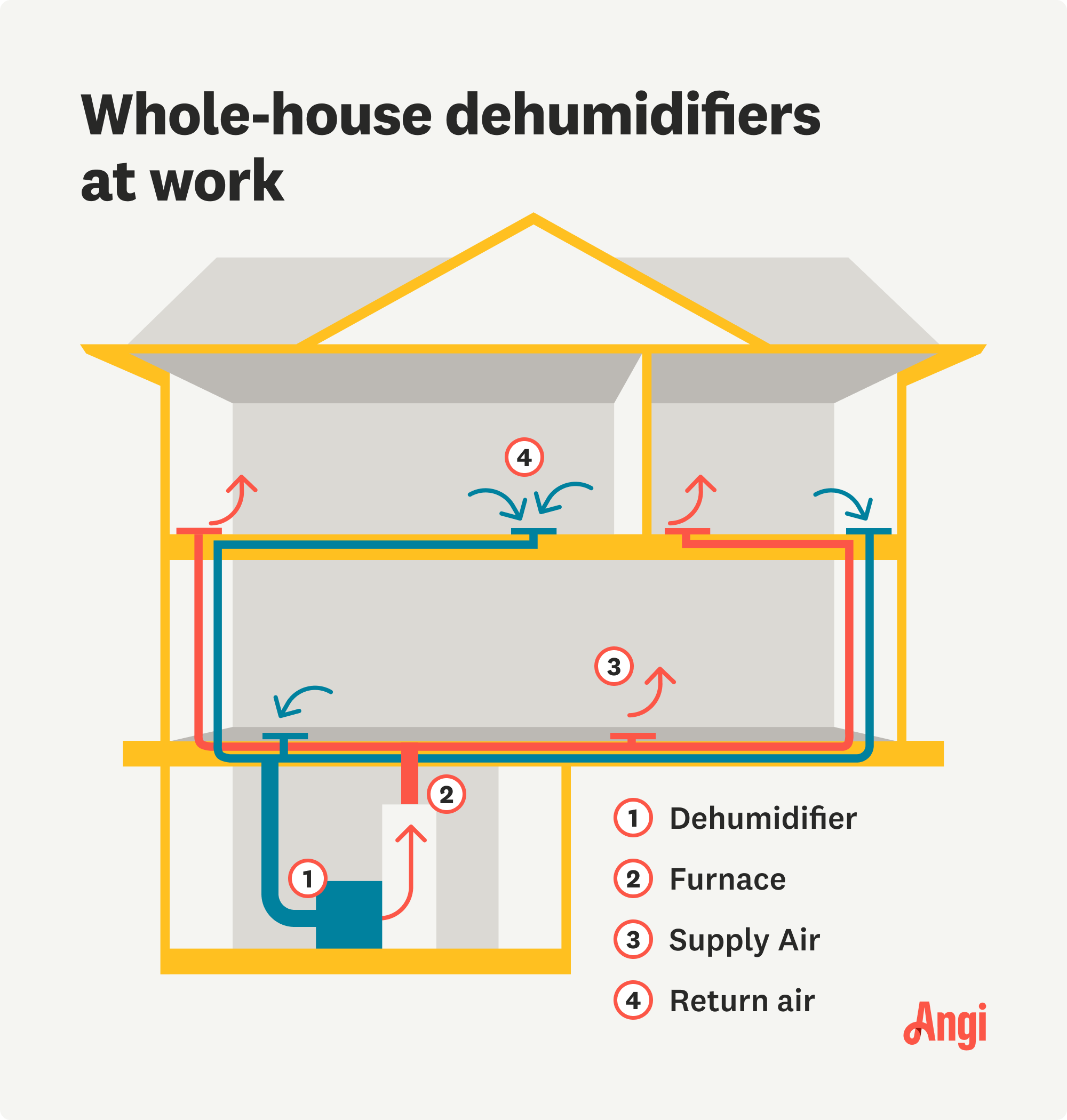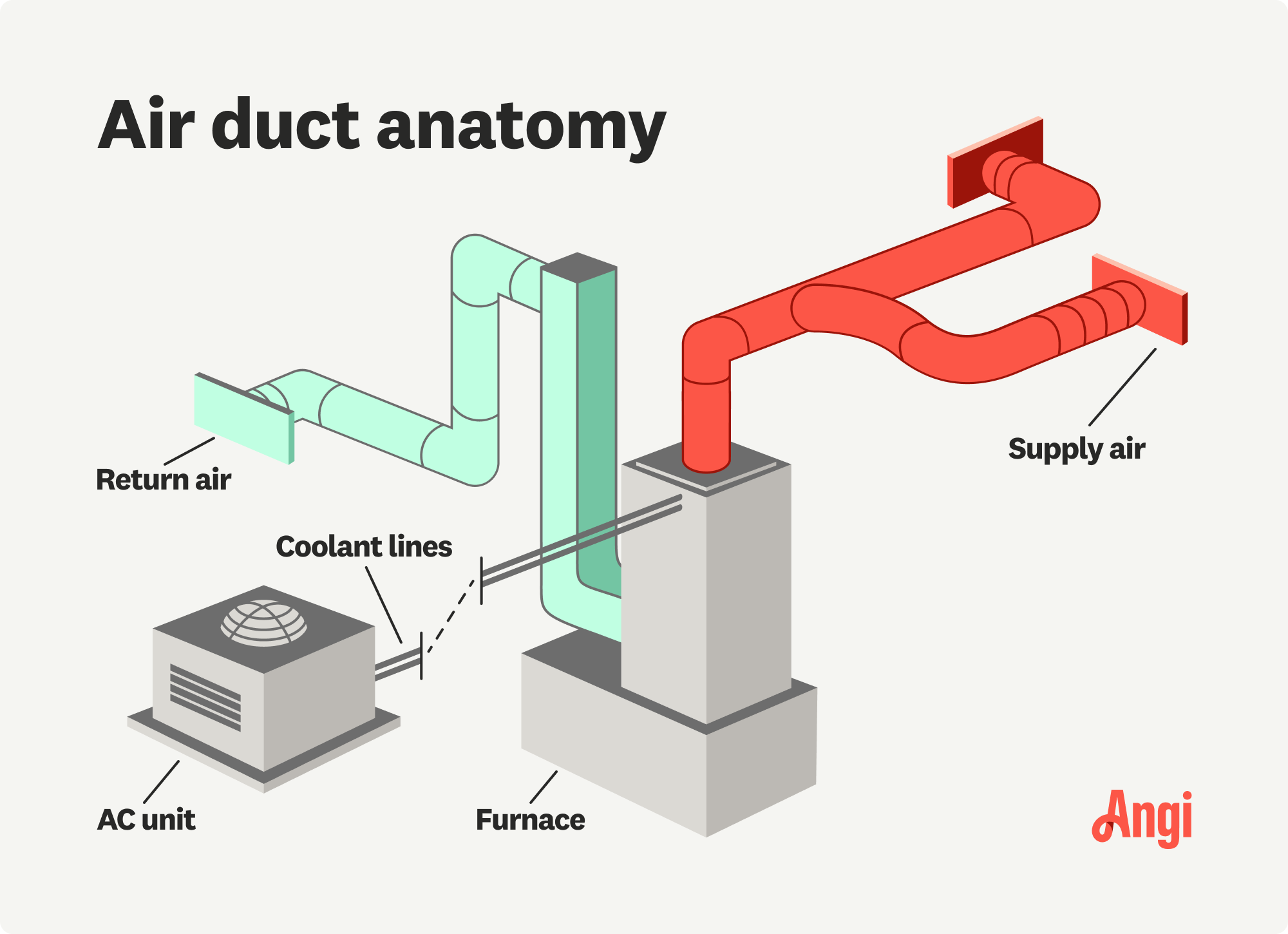How to Correct Oversized Air Conditioners: 7 Tips to Improve Efficiency
Don’t give your AC the cold shoulder


An oversized AC can cause increased humidity, uneven temperatures, and frequent short cycling. Luckily, there are a few ways to mitigate the symptoms of an oversized AC without having to replace your unit altogether. Jump into these seven tips for how to correct an oversized air conditioner and get your house cooled down properly.
1. Switch to a Smart Thermostat
Have a pro replace your thermostat with a smart thermostat so that you can program your temperature and humidity settings and ensure optimal cooling efficiency. You can run your AC only when you need it and monitor humidity levels (which should be between 30% and 50% during the summer months). You’ll be able to set schedules and additional programs to monitor and optimize energy usage. Smart thermostats work with all types of air conditioners.
2. Install a Dehumidifier

An oversized AC can lead to increased humidity in the air because the evaporator coil doesn’t have time to dehumidify the air before cycling off. Too much humidity can lead to potential mildew and mold growth and create a “clammy” feeling in the air. Call a pro to install a ducted dehumidifier to your HVAC system and connect the intake to a duct.
A dehumidifier helps prevent overcooling in your home. When humidity is removed from the air, it feels cooler without reaching a lower temperature. You can monitor and adjust humidity levels through a smart thermostat.
3. Add Warm Air Into the HVAC System
An oversized air conditioner often puts out more cold air at once and can make your home colder than the temperature on the thermostat. Mix warm air into the HVAC system through a return duct to cool your home more slowly and allow the system to run longer. Work with a local HVAC technician to balance your HVAC system or route warm air into your ducts.
4. Reduce Fan Speed
Use your thermostat to turn the fan speed to a lower setting to create longer run cycles when the unit is in cooling mode. For more complex systems, consult your unit’s manual to adjust the fan speed. The longer the AC runs, the more humidity it removes from the air, improving the air quality and comfort in your home.
5. Increase Minimum Run Time to the Maximum
On your thermostat, set the minimum run time to the maximum time possible (often 15 or 20 minutes). The longer your AC runs, the more it will have a chance to reduce the relative humidity of the air. A longer run time also ensures less short cycling, which causes wear and tear on your AC and increased energy usage.
6. Add Ductwork

By adding extra ducts to your HVAC system, the AC unit becomes more “right-sized.” Have a pro add supply ducts to a portion of your home that doesn’t currently have AC, such as your garage.
The increased ductwork will disperse excess air from an oversized AC and ensure better efficiency. Your energy bill likely won’t increase either, even though you’re cooling extra space. Having an additional conditioned space can add value to your lifestyle. Just imagine being able to enjoy all your garage-based hobbies in an air-conditioned environment.
7. Replace Your AC Unit
The best solution to an oversized AC is to replace your unit with one that’s optimized for your home’s size and conditions. While there is an up-front investment, your HVAC system will run better, your home will be more comfortable, and you’ll save on energy bills over the long run. Get quotes from local HVAC technicians on a properly sized unit, and consider selling your oversized AC to recoup some of the costs.
Oversized AC Unit Symptoms
You might have an oversized AC unit if you notice any of these symptoms:
Your AC unit is cycling on and off frequently (which shortens the lifespan of your AC and leads to increased energy bills).
Your home cools down too quickly and feels sticky and humid.
The relative humidity is too high (above 50%), which can cause mildew and mold growth.
The evaporator coil freezes.
You have high energy bills.
You have uneven temperatures throughout your home.
Your AC unit is noisy and seems to be working harder than it should.
You have frequent AC problems that need repairs, including short-circuiting and overheating.
Weird smells, like musty or mildew-like odors, are coming from your ducts.
HVACs are one of the most complicated and essential systems in our homes. To avoid further damage or safety risks, always hire a certified HVAC specialist to repair or replace broken parts.
How an HVAC Technician Can Help
If you’re experiencing the symptoms of an oversized AC unit, talk with a local HVAC service company. A pro can adjust your system settings or recommend the right-sized unit for your home. An HVAC tech will perform a load calculation on your home, which involves measuring each room, and recommend the right AC unit size for your home.





- Furnace Repair
- Air Conditioning Repair
- HVAC Repairs
- Furnace Installation
- Wood & Pellet Stove Repair
- Dehumidifier & Humidifier Repair
- Heat Pump Companies
- Swamp Cooler Repair
- Wood Stove Services
- HVAC Companies
- Commercial A/C Repair
- Geothermal Installation
- Air Conditioning Installation
- Boiler Repair
- 24 Hour Furnace Repair
- Geothermal Repair
- Heat Pump Repair
- Humidifier Installation
- Thermostat Repair
- Thermostat Installation
- Nest Installation
- Heating & Cooling
- Heating Repair
- Furnace Cleaning
- Furnace Tune-Up
- HVAC Technicians
- Subcontractors
- Furnace Maintenance
- Plumbing & Heating Companies
- Wood Stove Inspection
- Mini Split Installation
- Wall Heater Repair
- Duct Installers
- What Size AC Unit Do I Need for My Home?
- Air Conditioning Replacement: Should I Repair or Replace my AC Unit?
- The Best Time to Buy an Air Conditioner
- How to Clean Your AC So It Runs All Summer Long
- How Long Do AC Units Last? Here’s the Average Life Span
- How to Troubleshoot Your Air Conditioner: 12 Common Problems and Tips to Fix Them
- Why Is the Outside AC Unit Not Turning On, But the Inside Is? 9 Common Reasons
- Adding Central Air to Your House: Can You Install AC in Your Home?
- 5 Reasons Your AC Is Freezing Up and How to Fix It
- A Frozen AC Unit Won't Always Fix Itself—Here's How to Repair It
















